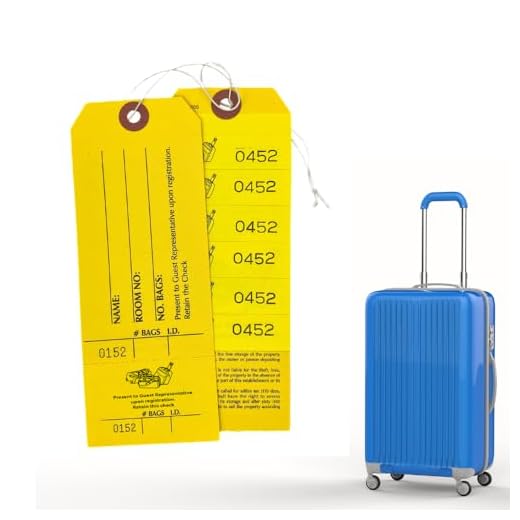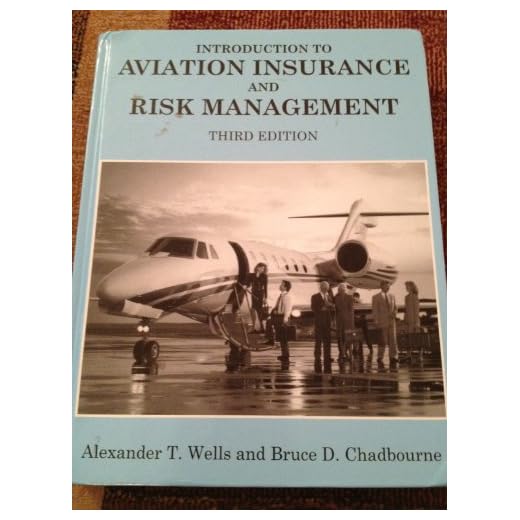

Expect a return of up to $3,500 for missing belongings on domestic flights, contingent on airline policies. International trips often follow the Montreal Convention, capping payouts around €1,500. Keep all receipts for purchases made while waiting for your possessions; airlines frequently cover essential items like clothing and toiletries.
File a claim as soon as you realize your property is missing, ideally within 24 hours. Consult the airline’s website for specific instructions, as each carrier maintains distinct procedures. It’s advisable to document your communications, including claim forms and reference numbers, to streamline the process.
Review your travel insurance policy too. It may provide additional support tailored to your circumstances. If your credit card offers travel benefits, you might find extra coverage available. Always compare all your options to maximize your potential compensation.
Reimbursement Amounts for Missing Baggage
Typically, compensation for unreturned items varies by airline, with limits set by international aviation regulations. For domestic flights within the U.S., the maximum is approximately $3,800, while international journeys adhere to the Montreal Convention, allowing claims up to approximately €1,288 (around $1,500). Always check carrier policies for variations.
Documentation Requirements
Gather essential documents to support your claim:
- Flight ticket and boarding pass
- Property Irregularity Report (PIR) from the airline
- Receipts for necessary purchases (e.g., clothing, toiletries)
Steps to File a Claim
Follow these steps to submit a request:
- Contact the airline’s customer service department.
- Submit the necessary documentation and any receipts.
- Keep track of your claim status.
Initiating the claim within the specified time frame, usually within 21 days, is crucial for successful compensation retrieval.
Understanding Airline Policies on Luggage Reimbursement
Check the specific airline’s regulations regarding compensation claims carefully, as policies differ significantly. Most carriers provide a fixed limit based on international or domestic travel. For example, under international regulations, airlines may be liable for amounts up to approximately €1,500 or equivalent in local currency.
Prioritize filing a claim promptly; many airlines require submissions within a limited timeframe, often as short as seven days. Ensure to retain any relevant documentation, including your baggage claim ticket, your travel itinerary, and any receipts associated with additional expenses incurred due to the delay.
Consider the possibility of coverage from travel insurance if applicable. Examine your policy to determine what is protected during incidents such as property loss. Furthermore, look into whether credit card benefits extend to provide additional support for this type of inconvenience.
While awaiting a resolution, keep essential items handy, and consider investing in high-quality travel essentials, such as the best luggage for study abroad and travel, to reduce potential risks. This preparation can help alleviate stress during unforeseen disruptions.
In some cases, airlines also offer compensation for reasonable expenses incurred when luggage does not arrive, so be sure to inquire about this option. Efficiently understanding these various guidelines can make a significant difference.
For parents traveling with little ones, consider options like the best umbrella stroller for winter, ensuring all necessary items are easy to transport if challenges arise.
Factors Influencing Compensation Amount
Several elements determine the compensation one may receive in the event of baggage mishaps. Familiarizing yourself with these factors can enhance your understanding and expectation during the claim process.
1. Airline Policies
- Different carriers have specific policies regarding compensation limits. Review the terms outlined in their baggage agreements.
- Some airlines operate under the Montreal Convention, which sets maximum liabilities based on weight, while others have differing limits.
2. Item Value and Documentation
- The value of the items within the bag significantly affects reimbursement. Providing receipts or proof of ownership can strengthen your claim.
- Luxury goods may warrant higher payouts if documented appropriately. Track high-value items and keep records.
3. Delay Duration
- Length of the delay before retrieval influences compensation decisions. Longer intervals might result in additional benefits for essential items purchased during the wait.
4. Passenger Actions
- Failure to report the issue immediately may hinder the compensation process. Report incidents as soon as possible to the airline’s representative.
- Adhering to the timeline for submitting a claim can expedite potential payouts. Missing deadlines may result in lost rights to compensation.
5. Travel Insurance
- Some policies may augment or provide coverage beyond the airline’s limits. Review your travel insurance coverage to understand what additional benefits may apply.
Understanding these variables will enable more effective communication with airline representatives and improve the likelihood of receiving appropriate restitution for any baggage issues encountered.
File a Claim for Missing Baggage
Initiate the process by reporting the absence of your belongings at the airline’s designated counter within the airport. Be sure to have your flight information, baggage tags, and identification ready.
Complete the required claim form provided by the airline. This form will typically ask for details such as your contact information, flight details, and a description of the lost items.
Gather any supporting documents, including boarding passes, receipts for the items in your bag, and any relevant correspondence with the airline. This will strengthen your case.
Submit your claim online or via the airline’s customer service. Confirm that you have received a reference number for tracking your claim status.
Keep communication lines open by checking in with the airline periodically to follow up on your claim status. Document all interactions, including names of representatives and dates of conversations.
After resolution, review the airline’s offer carefully. Ensure it aligns with their policies and your expectations before accepting the compensation.
For further efficiency in managing home needs while waiting for your claim to process, consider investing in the best fully automatic washing machine 9kg.
Time limits for submitting reimbursement claims
Immediately after discovering missing belongings, initiate the claim process, as time constraints vary by airline. Typically, reporting should occur within a few hours of arrival at the destination. Most carriers require written notification within 21 days, while some might allow only a week for immediate submission.
It is essential to check specific airline policies outlined on their websites or customer service documentation. Delays in filing could lead to claim rejections or reduced compensation amounts.
In cases of delayed retrieval, notify the airline within the designated timeframe, ensuring that all relevant documents, including baggage claim receipts and travel itineraries, are included. This documentation supports your claim and helps solidify your case.
Keep record of all communications with the airline, as they may be pertinent if disputes arise regarding claim validity or payment amounts. Don’t miss the opportunity to secure compensation by adhering strictly to these timelines.
What to do if your claim is denied
First, review the denial letter carefully. Understand the reasons provided for the rejection, as this will guide your next steps. Gather all relevant documents, including your original claim, correspondence with the airline, and proof of expenses related to the incident.
Prepare an appeal
Clearly articulate your case in the appeal. Reference specific airline policies that support your claim. Include documents like boarding passes, baggage claim receipts, and any correspondence with the airline that might bolster your argument.
Contact customer service
If the appeal does not yield results, reach out to the airline’s customer service. Request a more detailed explanation of the denial. Sometimes, speaking directly with a representative can help clarify misunderstandings. Be polite but firm when discussing your situation.
If resolution still eludes you, consider escalating the matter. Involve consumer protection agencies or file a complaint with the relevant travel authority. These steps can often motivate airlines to reconsider their decisions.
Keep meticulous records of all interactions, including dates, names, and outcomes. If necessary, approach social media platforms to share your experience, which may prompt the airline to address your concerns more urgently.
Additional Protections Through Travel Insurance
Travel insurance can provide crucial coverage for personal belongings that airlines may not fully compensate for, particularly when dealing with baggage issues. Policies can vary significantly, so reviewing terms is essential before purchasing.
What to Look for in a Policy
Ensure the travel insurance policy includes specific sections addressing lost or damaged belongings, covering more than what airlines may offer. Many policies provide compensation up to a pre-determined limit, which can be advantageous in managing costs associated with replacing essential items.
Key Features to Consider
| Feature | Description |
|---|---|
| Coverage Limits | Verify the maximum payout for lost belongings and any sub-limits for specific categories such as electronics or clothing. |
| Timeframe for Claims | Understand any deadlines by which claims must be submitted; these can differ widely by insurer. |
| Documentation Requirements | Review what type of proof is necessary for claims, such as receipts or police reports. |
| Additional Perks | Look for benefits like coverage for travel delays, which may help replace necessities if baggage is delayed. |
Choosing the right insurance policy enhances protection against potential financial losses when bags are misplaced. Always read the entire policy to ensure clarity on the terms and conditions.
FAQ:
How much compensation can I expect for my lost luggage?
The amount of compensation for lost luggage typically depends on the airline’s policy and the specific regulations that apply in the region of travel. In the United States, for instance, airlines are required to compensate passengers up to about $3,800 for lost luggage under federal regulations. In Europe, the Montreal Convention may limit compensation to around €1,500. Always check with your airline for their specific terms and conditions as these may vary.
What steps should I take if my luggage is lost?
If your luggage is lost, the first step is to report it to the airline immediately at the airport’s lost luggage counter. They will provide you with a reference number and guidance on how to follow up. Be sure to keep all documentation, including your boarding pass and baggage claim tags. It’s also advisable to take note of the contents of your luggage, as this may be needed later for reimbursement or claims.
Can I claim reimbursement for items I purchased while waiting for my luggage?
Many airlines allow reimbursement for necessities purchased while a passenger waits for their lost luggage. These may include items like clothing, toiletries, and other essentials. However, there is usually a limit on the total amount you can claim, and receipts will be required. Always check the airline’s policy for specific allowances and limits, as they can vary widely.
How long does it usually take to receive reimbursement for lost luggage?
The time frame for reimbursement can differ based on the airline and the complexity of your claim. In general, once you have submitted your claim, it can take anywhere from a few days to several weeks to process. It’s a good idea to keep in contact with the airline for updates and to ensure your claim is being handled.
What if my luggage is found after I have received compensation?
If your luggage is found after you’ve received compensation, the airline typically instructs you to return the reimbursement amount. You are generally required to inform the airline about the recovery of your luggage. They may request that you return the funds or provide instructions on how to proceed. It’s important to follow their guidelines to avoid potential issues down the line.








